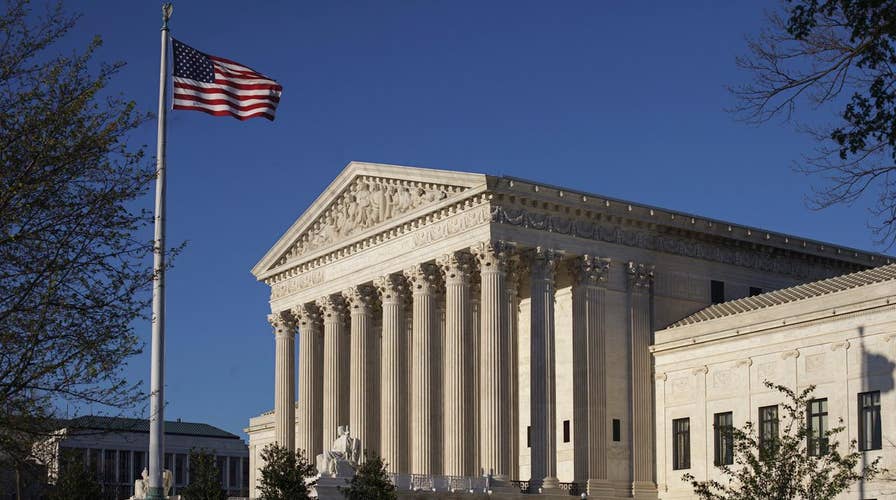Supreme Court allows partial enforcement of Trump travel ban
Justices will hear arguments on case in the fall
After successive rulings by numerous federal courts against President Trump’s controversial travel ban, the U.S. Supreme Court on Monday delivered what Trump is touting as a clear victory – allowing most of the policy to be enforced and teeing up a high-stakes court battle for the fall in which the administration may have the upper hand.
Monday’s ruling effectively allows part of Trump’s executive order to go into effect, including a 90-day ban on people entering the United States from six mostly-Muslim countries who “lack any bona fide relationship with a person or entity in the United States,” such as a spouse, close relative, employer or enrollment in an American university.
It also allows a 120-day ban on all refugees entering the United States to go into effect.
The ruling, though, sets up further litigation in the courts over the coming weeks on just how far the “bona fide” exemptions can go and whether emergency exceptions will be granted.
“I fear that the Court’s remedy will prove unworkable,” Justice Clarence Thomas wrote. “The compromise also will invite a flood of litigation until this case is finally resolved on the merits, as parties and courts struggle to determine what exactly constitutes a ‘bona fide relationship,’ who precisely has a ‘credible claim’ to that relationship, and whether the claimed relationship was formed ‘simply to avoid §2(c)’ of Executive Order No. 13780.”
Reaz Jafri, head of the global immigration practice at Withers Bergman law firm, told Fox News he expects a significant uptick in cases and protests. Jafri advises clients on how to navigate the U.S.’s changes in immigration policies.
“It is still unclear if a national from one of the banned countries will get a visa to visit a family member, participate in a conference, visit schools or come for a job interview,” Jafri said. “Will these be considered bona fide reasons to visit the U.S.? My sense is ‘no’ and the implication is that U.S. businesses, universities and families will be negatively impacted.”
All nine justices agreed in the 13-page decision to take up the case in the fall, setting up a showdown over the legality of the order.
Justices Neil Gorsuch, Samuel Alito Jr. and Thomas wrote a three-page opinion saying they would have allowed Trump’s travel ban to take effect fully, without regard to a foreign national’s connection to the United States. Their dissent could foreshadow a tough road ahead for opponents of the travel ban.
The justices agreed to hear oral arguments on the merits of the executive order – whether the ban is lawful or exceeds the president’s powers - during the Court's next term, which begins in October.
Though Monday’s decision wasn’t the final word on the travel ban, Trump touted it as “a clear victory for our national security.”
“As president, I cannot allow people into our country who want to do us harm,” he said in a written statement. “I want people who can love the United States and all of its citizens, and who will be hardworking and productive.”
Trump has been incensed since his original executive order, signed on Jan. 27, was partially blocked by a federal court.
"What is our country coming to when a judge can halt a Homeland Security travel ban and anyone, even with bad intentions can come into U.S.?" Trump tweeted on Feb. 4.
He added on Feb. 11: "Our legal system is broken!"
In early March, Trump issued a revised executive order -- which also had key provisions blocked by federal courts.
Trump has been spoiling for the Supreme Court to take up the case and eager to get it out of the hands of what he sees as more liberal appellate judges.
Four days after signing the original ban, Trump nominated Gorsuch to fill the Supreme Court seat vacated when Antonin Scalia died.
Gorsuch, who has since been confirmed, is largely seen as a conservative, originalist justice in the Scalia mold and could help Trump claim an even more definitive victory after arguments.
Omar Jadwat, director of the ACLU's Immigrants' Rights Project, called the travel ban unconstitutional, saying, "Courts have repeatedly blocked this indefensible and discriminatory ban. The Supreme Court now has a chance to permanently strike it down."
Fox News Bill Mears' contributed to this report.




